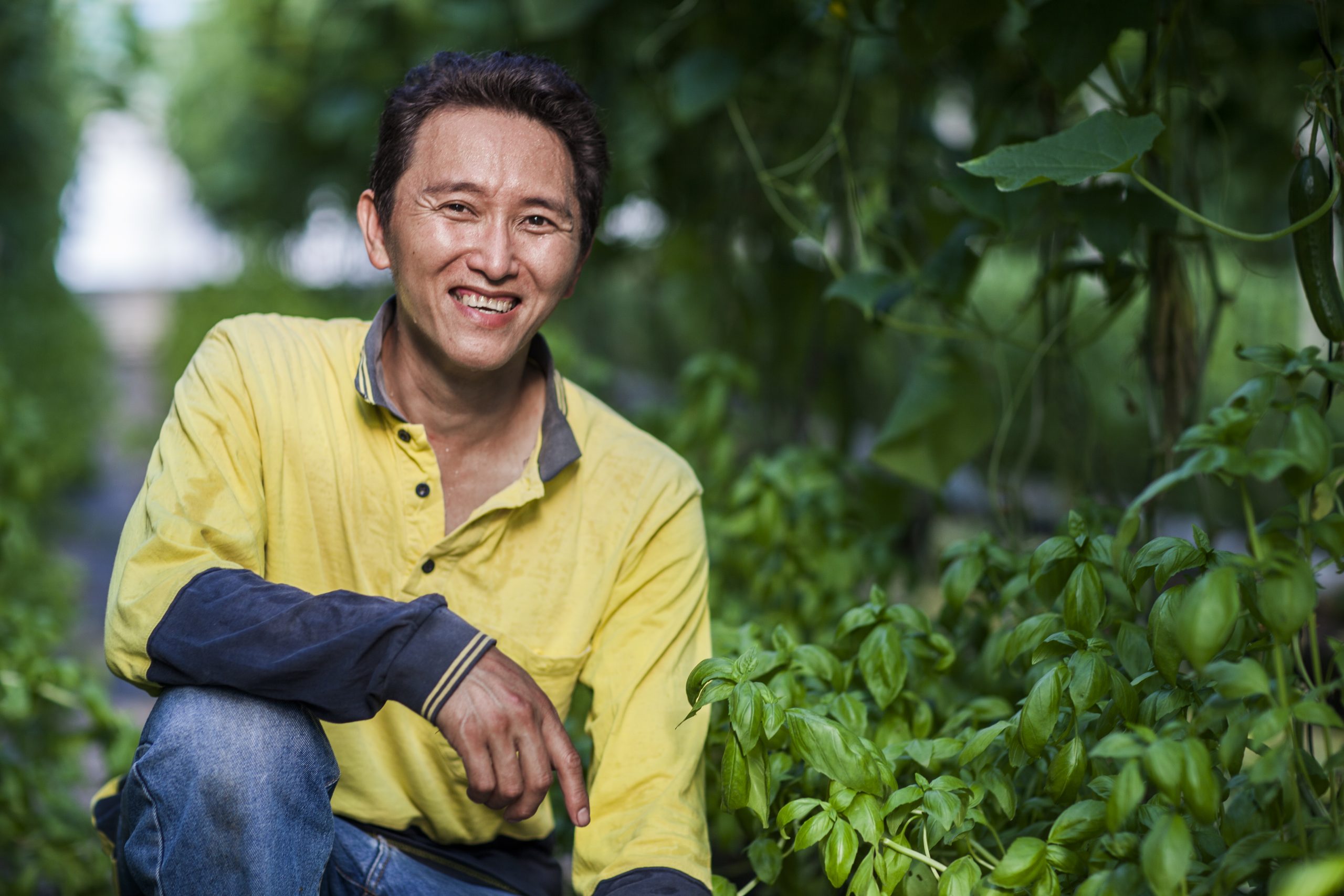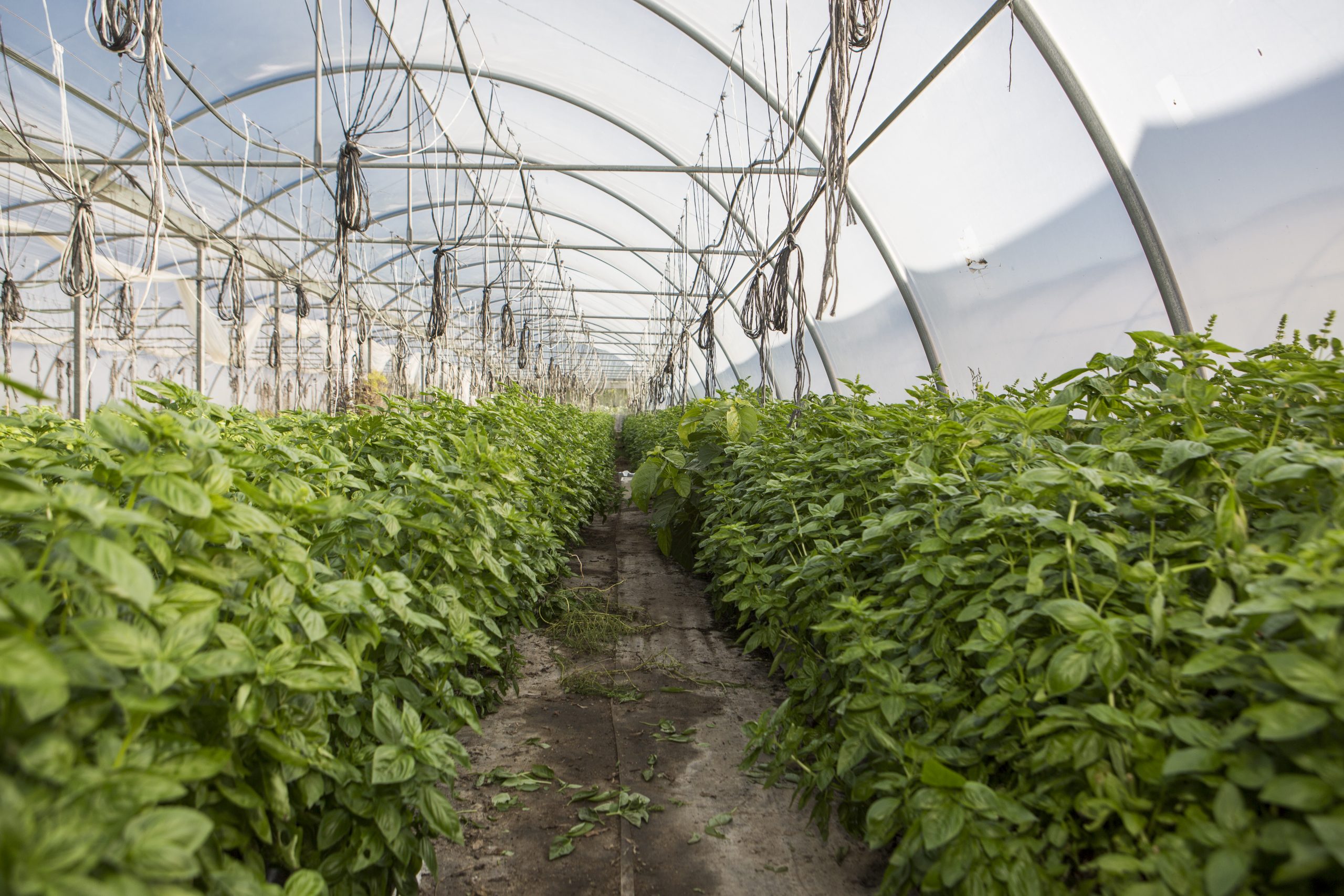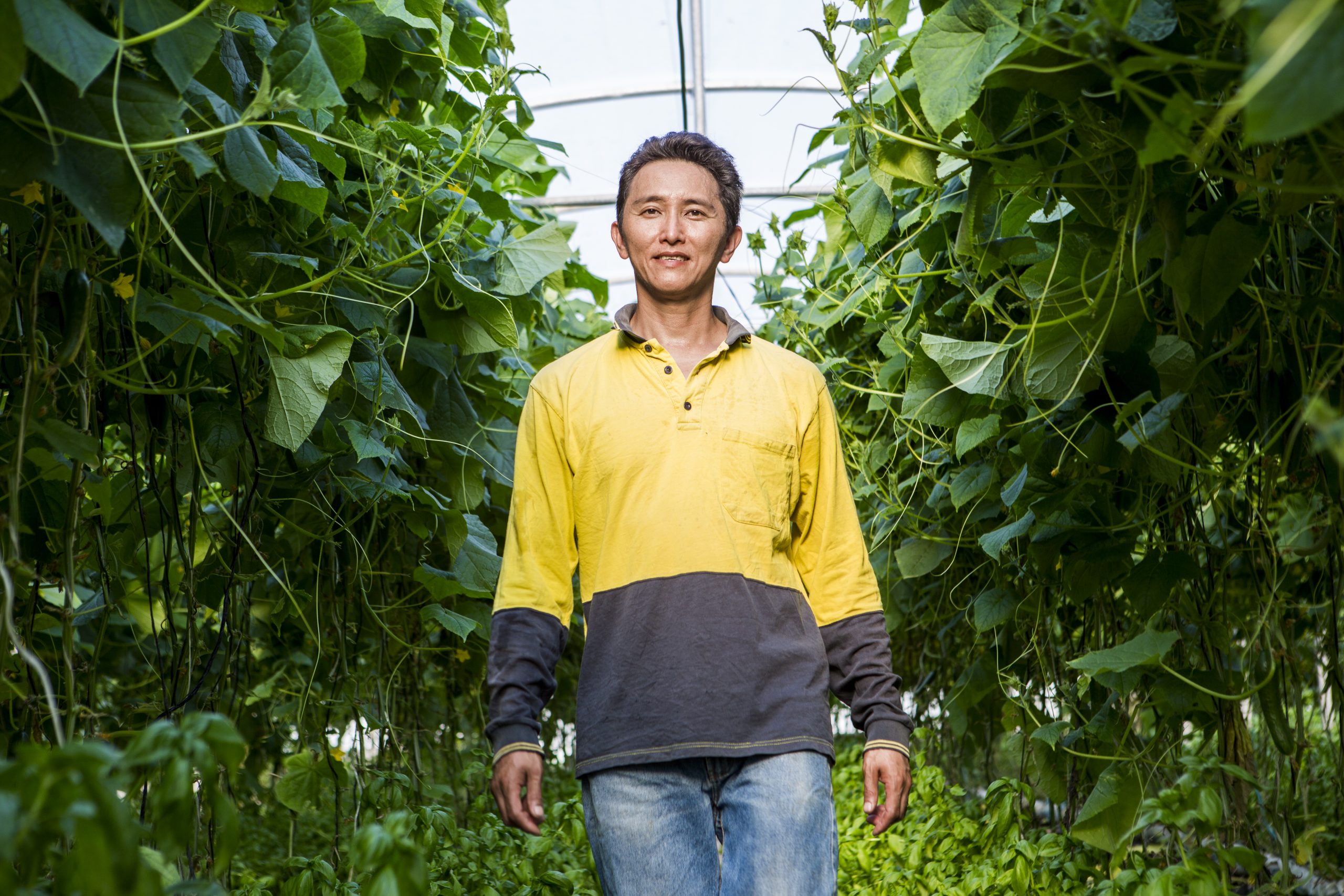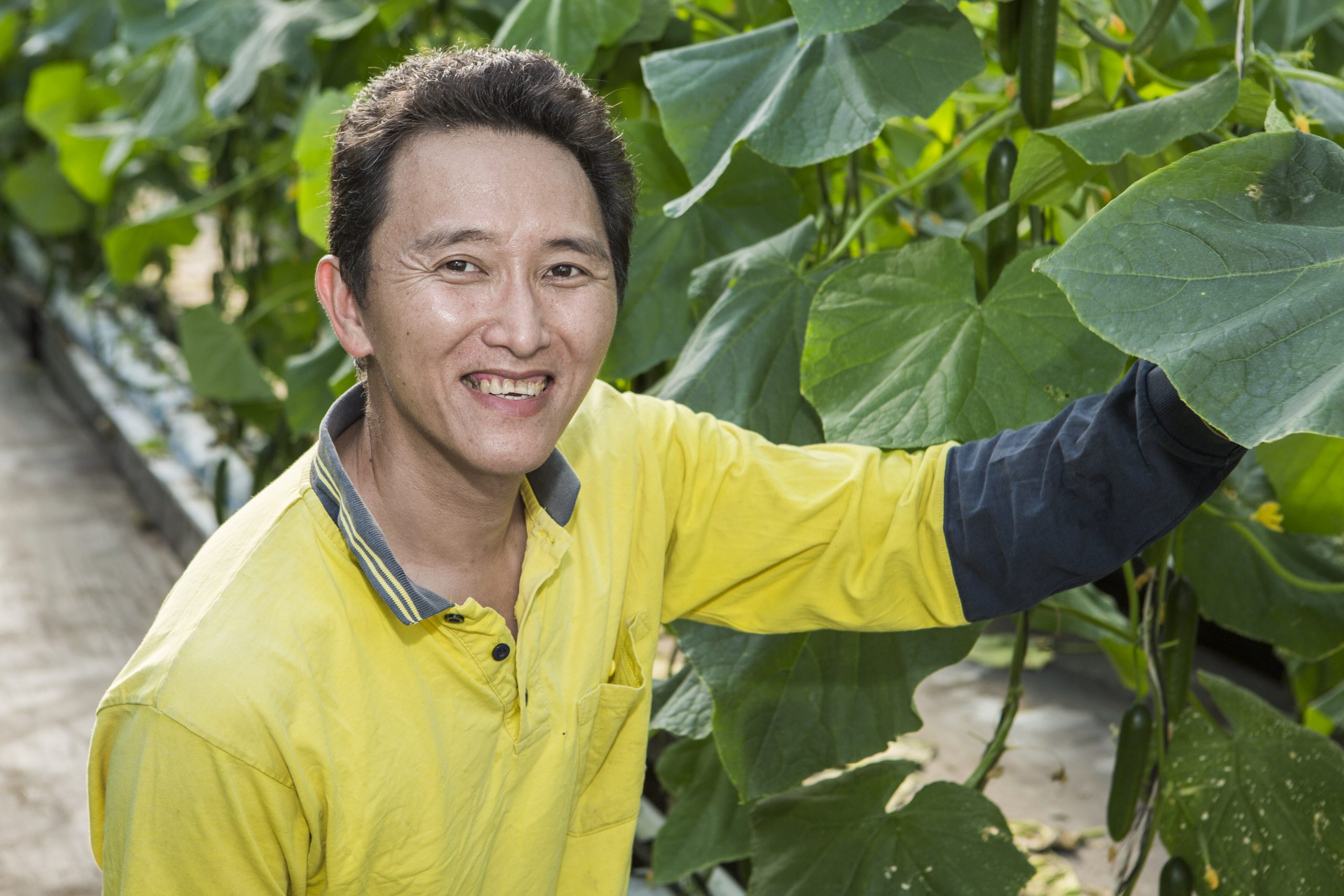Enoch X: Harvesting the fruits of his labour
Fast facts
Enoch X
Location: Kemps Creek, NSW
Grows: Cucumbers, flat beans, basil, parsley
How did you first become involved in the vegetable industry?
Getting started was a huge learning curve. I have a friend who is involved with farming and I thought if she could do it, I could too. But it was a lot of trial and error. Even though my friend gave me a lot of guidance, it took a long time to actually understand the correct practice. However, I am still learning and tackling new problems as they arise.
What does your role in the business involve, and what are your responsibilities?
My responsibility is to ensure the plants are getting enough nutrients to stay healthy and to deal with problems such as common or new diseases and pests.

What do you enjoy most about working in the vegetable industry and how do you maintain your enthusiasm?
I greatly enjoy watching my plants grow and harvesting the fruits of my labour. Sometimes disasters strike such as heatwaves, or big storms rip the greenhouses apart, but it’s part of the practice. I just have to anticipate it, remain positive and take actions to adapt. Knowing that the quicker I recover, the higher the chance of receiving a good price for produce as others are still “licking their wounds”.
What are the biggest challenges you face working in the industry, and how do you overcome them?
For an emerging grower, there are tons of problems to tackle. These include pests and diseases, irrigation system failure and market crashes. But the biggest problem of all is lack of experience. There is a vast amount of knowledge found in books and online, but they will not translate into ‘experience’ until you actually apply it and face the problems head-on.
I learn a lot from my M.O.M, P.O.P and G.O.D (M.O.M stands for my own mistakes; P.O.P is perils of people; and G.O.D is guidance of the divine, which is our God-given wisdom and common sense.)
Another huge problem for vegetable growers and other industry members is what I call the P.H. problem. And no, it has got nothing to do with acidity or alkalinity: it is poor husbandry. Especially dealing with difficult pests such as spider mites and diseases such as Pythium root rot. You just have to keep on top of it. Preventing these pests and diseases is always better than treating them.
"Eventually, I discovered specialist horticulturalists and now attend events organised by AUSVEG, VegNET and the New South Wales Department of Primary Industries (NSW DPI)."

Where do you receive your on-farm practice advice and information from?
At first, I asked friends. My advice is to make lots of new grower friends if you have to.
Eventually, I discovered specialist horticulturalists and now attend events organised by AUSVEG, VegNET and the New South Wales Department of Primary Industries (NSW DPI). These events have a lot of information relating to chemicals, diseases and good farming practices.
One thing I have definitely learnt from these resources is good sanitation. That helps to prevent a lot of problems in the first place. They have also helped me to network with other growers and industry experts, such as Andy Ryland and Len Tesoriero, who personally visited my farm and gave me lots of useful advice.
Where do you see yourself in five years?
I am not sure that I will still be producing crops commercially the way we are doing now, as climate changes and the market fluctuates a lot. But I will definitely grow something and pass on the knowledge to anyone who wishes to learn, because having no growers means no food for the nation and for the world. I am also thinking of experimenting in aeroponic, aquaponic and permaculture, to become more sustainable as water becomes scarcer in certain parts of the country.
How do you think more young people could be encouraged to study and take up jobs in the vegetable industry?
Young people actually have a better chance to make it because there are more and more courses available both online and at colleges. With new robotic automation and drone technology, it will be a lot easier for them. Even taking short courses and workshops organised by DPI or the local TAFE would greatly help.
Everyone thinks it’s hard when they do not have the knowledge and confidence, but growing vegetables commercially is easy once you get the know-how.
This grower profile first appeared in the leading magazine for the Australian vegetable industry, Vegetables Australia. If you’d like to subscribe to receive a new edition of Vegetables Australia in your mailbox every three months, use our online subscription form!
Photography credit: John McRae.


